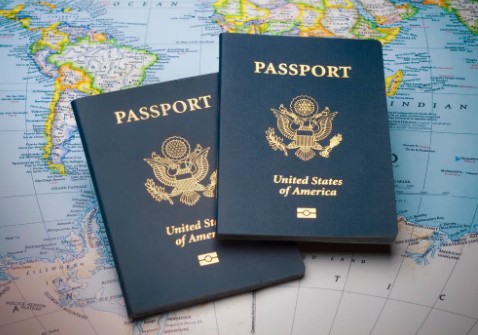In an increasingly globalized world, a passport is more than just a travel document — it’s a gateway to opportunity, freedom, and mobility. Every year, millions of people eagerly await the Passport Ranking update to see which nations lead in travel freedom and which lag behind. As we enter 2025, the global passport hierarchy continues to shift, reflecting political stability, diplomatic relationships, and economic influence worldwide.
Understanding the Global Passport Ranking System
The passport ranking system evaluates the number of destinations that passport holders can access without needing a prior visa. The more visa-free or visa-on-arrival destinations available, the more powerful the passport is considered.
Among the most recognized indices are:
- Henley Passport Index
- Arton Capital’s Passport Index
- Global Citizen Passport Power Ranking
These organizations analyze visa policies from over 200 countries and territories, updating their data quarterly to provide the most accurate overview of global travel freedom.
Top 10 Strongest Passports in 2025
According to the latest 2025 ranking, Asia continues to dominate. Japan, which long held the top spot, now shares its position with several European nations as travel agreements evolve.
- Japan, Singapore, and France – Access to 195 destinations visa-free or with visa-on-arrival.
- Germany, Italy, and Spain – Access to 193 destinations.
- Finland, South Korea, and Sweden – Access to 192 destinations.
- Denmark and the Netherlands – Access to 191 destinations.
- Austria, Ireland, and Portugal – Access to 190 destinations.
European countries remain consistent powerhouses, but Asian nations, especially Singapore and Japan, show how strategic diplomacy and economic leadership translate into global mobility.
Notable Climbers and Decliners in 2025
Some nations saw significant movement in the passport ranking 2025 list due to changing global relations and new bilateral agreements.
- United Arab Emirates (UAE) continues to climb, now granting its citizens access to over 180 countries visa-free — a testament to its proactive foreign diplomacy.
- South Korea remains one of the few Asian nations competing closely with Europe in passport power.
- China has made slow progress, reaching around 90 visa-free destinations, mainly within Asia and Africa.
- Russia and Iran, however, continue to face restrictions due to ongoing geopolitical tensions, limiting their passport strength.
Why Passport Strength Matters More Than Ever
In 2025, global travel has become more dynamic yet more complex. A powerful passport doesn’t just simplify tourism; it opens opportunities for business, education, healthcare, and relocation.
For example:
- Entrepreneurs with strong passports can attend international conferences or meet investors without lengthy visa processes.
- Students gain quicker access to universities abroad.
- Families enjoy smoother vacations without bureaucratic hurdles.
Essentially, passport strength reflects a nation’s international reputation, trust, and stability.
Factors That Influence Passport Ranking
Several key elements determine how countries rank in 2025:
- Diplomatic Relations – Friendly nations often form mutual visa-waiver agreements.
- Security Policies – Countries with strong border control and low terrorism risk gain wider acceptance.
- Economic Partnerships – Trade and investment ties often pave the way for easier travel.
- Reciprocal Treatment – Some countries enforce “tit-for-tat” visa rules based on how their citizens are treated abroad.
These factors ensure that the ranking reflects not only travel convenience but also geopolitical influence.
Global Mobility in the Post-Pandemic Era
After the pandemic, many countries revisited their visa regulations. Health, vaccination status, and digital travel records became part of the equation. By 2025, with most restrictions lifted, global travel freedom is largely restored — yet countries remain cautious.
Some governments now prioritize digital visa systems and biometric verification, making travel faster and safer. The future may see “smart passports” becoming the global standard, combining security with convenience.
The Most Improved Passports in 2025
Three nations stood out for their impressive progress this year:
- Malaysia – Now offers visa-free access to 183 destinations, climbing steadily in rankings.
- Turkey – Strengthened through new agreements with Asian and African countries.
- India – Gradually expanding its reach with visa-on-arrival options in the Middle East and Southeast Asia.
These improvements signal a trend toward regional cooperation and digital travel facilitation.
How Passport Rankings Impact Travelers
While passport power benefits citizens directly, it also affects tourism, trade, and investment. Countries with high-ranking passports often experience:
- Increased tourist inflows due to reciprocal visa arrangements.
- Higher foreign investment confidence.
- Easier access for digital nomads and global workers.
For frequent travelers, understanding passport rankings helps plan international movements more efficiently, ensuring smoother border experiences.
Related Resource
For those who travel often or seek lifestyle flexibility abroad, it’s useful to stay updated with the latest international trends, including technology, gaming, and entertainment. Learn more through https://www.mega888.com.co/ — a trusted online platform providing global updates and insights across diverse industries.
FAQ: Passport Ranking 2025
Q1: Which passport is the strongest in 2025?
Japan, Singapore, and France jointly hold the top position, offering visa-free access to 195 destinations.
Q2: What determines passport ranking?
It depends on visa-free access, diplomatic ties, and international trust levels.
Q3: How can a country improve its ranking?
Through new bilateral agreements, better border security, and global cooperation.
Conclusion: Mobility as a Measure of Modern Freedom
The Passport Ranking 2025 report highlights how international relationships and policy reforms shape the world’s mobility landscape. Owning a powerful passport today represents more than convenience — it’s a reflection of national progress and global trust.
As countries continue to collaborate, travelers worldwide can look forward to a future of greater freedom and connectivity. Whether for business, education, or exploration, global mobility remains the true passport to opportunity.





